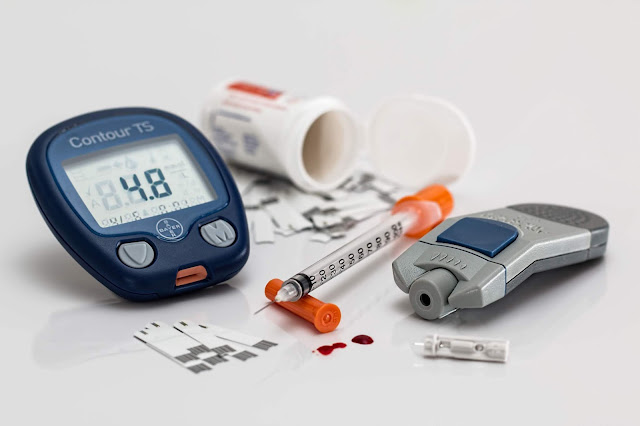What is Diabetic Neuropathy?
Diabetic neuropathy is a disease of the nervous system in which the consistent high blood sugar levels of diabetes cause damage to nerves in the body and resulting in a wide variety of side effects. Diabetic neuropathy affects a large portion of diabetic patients to some degree over the course of a life with the disease, and the resulting complications can be implicated in many of the diabetes-related amputations suffered by those with diabetes. About half of diabetic patients will suffer some form of nerve damage, though this damage usually occurs ten to twenty years after a diagnosis of diabetes. Several people question how diabetes is diagnosed ? can diabetes be cured ? Can diabetes be reversed ? Well, diabetes is diagnosed by simple blood glucose test through gluco-meters which give a daily based measurement of blood glucose both fasting and random. There is another lab. test called "Glycated Hemoglobin test" or HB1AC which shows a record of blood glucose level in past 2-3 months.
Diabetes cant be cured, it is managed through 3 regimes.
Well it is a frequently asked question in different medias i:e what causes diabetic neuropathy? Treatment for diabetic neuropathy? Can diabetic neuropathy be reversed? Treatment for diabetic neuropathy? All these questions and phrases havebeen addressed below
Diabetes cant be cured, it is managed through 3 regimes.
- Diet and Exercise
- Medications
- Insulin
There a Cure for Diabetic Neuropathy?
Well it is a frequently asked question in different medias i:e what causes diabetic neuropathy? Treatment for diabetic neuropathy? Can diabetic neuropathy be reversed? Treatment for diabetic neuropathy? All these questions and phrases havebeen addressed below
Although much research has gone into the field of degenerative nerve damage and scientists have a significantly better understanding of diseases like this, there is currently no method to cure diabetic neuropathy. Methods of diabetic neuropathy treatment typically revolve around preservation of nerves and the prevention or slowing of progressive nerve damage associated with the disease. Diabetic neuropathy pain management is also a major element of treatment plans, as nerve damage can sometimes be extremely painful. Lastly, diabetic neuropathy management involves treating the varied and diverse side effects that are often associated with the disease, which can include digestive problems, sexual dysfunction and physical limitations. While it isn't possible to stop diabetic neuropathy entirely, the difference in quality of life and life expectancy differ greatly between patients who seek treatment and those who do
How Diabetic Neuropathy is diagnosed?
Almost Every diabetic patient is worried about neuropathy at some phase of life. They keep on asking such questions on various social platforms which depicts their concern. They are anxiously asking about Diabetic Neuropathy Diagnosis, Diabetic Neuropathy symptoms, and medicine for diabetic neuropathy.
First and foremost, diabetic neuropathy is a disease limited to patients already suffering from diabetes; the mechanisms that cause the progressive nerve damage stem from the high blood sugar levels of diabetic patients. For those that have already been diagnosed with diabetes, further tests can determine if nerve damage is present in the extremities; identifying this facet of the disease is the most common method of diagnosing the disease. This can easily be a part of a yearly physical checkup with a doctor, and diabetes sufferers concerned that they might be experiencing nerve damage or other debilitating side effects (consult our Diabetic Neuropathy Signs & Symptoms page) should consult with a doctor to get a simple diagnosis and begin treatment.
What are major symptoms of diabetes and Complications of Diabetic Neuropathy?
Left untreated, the most important and debilitating result of diabetic neuropathy is lasting damage to the nerves of the extremities and even internal organs. As an extreme, amputation is sometimes necessary in case of diabetic neuropathy in foot to remove non-functioning tissue and preserve circulation in other parts of the body. In fact, insufficient treatment of diabetic neuropathy is actually the most common cause of amputation in the United States today.
Other complications can also potentially result from diabetic neuropathy. Diabetic neuropathic pain is a frequently experienced symptom along Changes in vision, bladder function, sexual function in both men and women, infections in both the kidneys and bladder, speech impairment, involuntary muscle contractions, muscle deterioration or damage, skin damage and an inability to sense internal and external stimuli are all notable complications of diabetic neuropathy. These complications can range in severity from mild or insignificant to serious and potentially life threatening (a decreased sensitivity to angina, the chest pain associated with heart trouble and heart attacks, is one example of a deadly complication that is sometimes associated with the disease).





